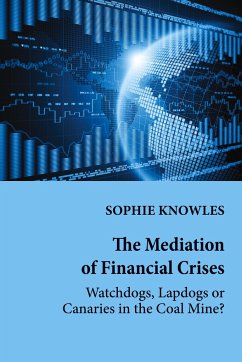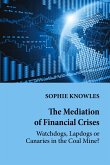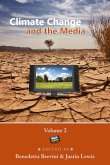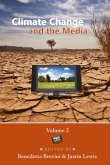In 2007-8 the world economy started its heady journey to recession. The Queen herself asked "why didn't we see this coming," but it's a question that remains unanswered. A decade later and it is still not clear exactly who is responsible for the crisis. The world has experienced the long-term impact of austerity policies on its welfare system and the political landscape is completely changed.
This analysis of the media that reported on this crisis and where it came from is long overdue. The media were responsible for warning the public-a role they failed in. This book provides evidence that journalists, like bankers and regulators, need to be held accountable. The Global Financial Crisis is a starting point, but it deserves a much wider context and explanation, one this book provides for the first time.
Looking at three global and pivotal financial crises, this book assesses the degree to which financial and economics journalists have played a watchdog role forsociety. It takes a long glance back from the Global Financial Crisis of 2007-8 to look at the (as it shows, gradually narrowing) content we have been reading in mainstream publications, and speaks to journalists in three countries to gauge the reality of the situation from the perspective of the newsroom.
This analysis of the media that reported on this crisis and where it came from is long overdue. The media were responsible for warning the public-a role they failed in. This book provides evidence that journalists, like bankers and regulators, need to be held accountable. The Global Financial Crisis is a starting point, but it deserves a much wider context and explanation, one this book provides for the first time.
Looking at three global and pivotal financial crises, this book assesses the degree to which financial and economics journalists have played a watchdog role forsociety. It takes a long glance back from the Global Financial Crisis of 2007-8 to look at the (as it shows, gradually narrowing) content we have been reading in mainstream publications, and speaks to journalists in three countries to gauge the reality of the situation from the perspective of the newsroom.
"This crisply written and compelling book does the business press the honour of taking it and its role seriously, giving credit where it is due, acknowledging the challenges it faces, but forthrightly and illuminatingly holding it to account where deserved. And it often is. The book's historical and comparative approach, comparing coverage of the 2008 crisis to previous modern crises, provides vital context for the press's buy-in to a deregulatory agenda and other pro-industry assumptions. And by comparing the press's role in different countries-in the U.S., U.K. and Australia-it exposes how 'group-think,' as she rightly calls it, crossed borders and took over Anglo-Saxon newsrooms. And to her great credit, Sophie Knowles gets out into the field to asks the press for its side of the story, through qualitative interviews that add another essential dimension to the analysis. As we continue to struggle through a post-crisis world, Knowles challenges the press to do better-to marshal its formidable resources and talents to puncture the myths that got us here and to help build a more stable future. The Mediation of Financial Crises is a vital contribution to our understanding of the financial press and of the press in general."-Dean Starkman, Senior Editor, International Consortium of Investigative Journalists; Author, The Watchdog That Didn't Bark: The Financial Crisis and the Disappearance of Investigative Journalism








